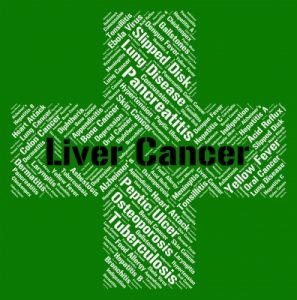
Early detection of cancer saves lives. Whether it’s breast, liver, or skin cancer, when it’s found and treated early, our survival improves markedly.
But here’s the rub. We intellectually know that early detection works, but performing those self-breast exams or getting screened for liver cancer carries a huge risk – what if something is found?
Every trip to the doctor or lab reminds us of our mortality, especially when we have hepatitis B. We have to take that risk and acknowledge our mortality, even when the healthcare system doesn’t make it easy.
A few months ago, the Hepatitis B Foundation assembled national experts to discuss how well the system worked to identify and treat liver cancer, which is now one of the top causes of cancer deaths. Worldwide, today hepatitis B causes 45 percent of liver cancers.
Their findings, published in the April 2015 issue of the Journal of the National Cancer Institute, paint a dismal picture of a healthcare system that often fails us, our family members, and our friends who live with hepatitis B and are at risk of liver cancer. Not only are providers failing to screen a large percentage of at-risk patients, when they find liver cancer, their treatment is often inadequate and inconsistent across clinics.
Who should be screened for liver cancer? Hepatitis B-infected Asian men (or of Asian descent) over age 40 years and Asian women over age 50 years, patients with a family history of liver cancer, patients with cirrhosis, and Africans over the age of 20 should all be screened.
What is the screening? A semi-annual ultrasound and blood tests to detect liver cancer are recommended, but this approach is only 70 to 80 percent effective in identifying liver cancers. This means 20 to 30 percent of people at risk of cancer won’t get diagnosed. And there are other problems.
A recent, large study of 5,000 insured hepatitis B patients in the U.S. who did not have cirrhosis found that only 6.7 percent of them had been screened properly, based on recommendations, over the four-year study. And these are the patients with insurance who have good access to healthcare. Liver cancer screening among uninsured people is downright abysmal, and usually performed only after liver cancer has progressed to an inoperable and untreatable stage.
About 60 percent received partial screens and 34 percent had not been screened at all. Those least likely to be screened lived in rural areas (where doctors had little hepatitis B expertise and were unfamiliar with current guidelines) or were coinfected with HIV.
While ultrasound exams are affordable, relatively easy to perform and widely available, the success of this screen depends entirely on the operator’s skill and experience. If the operator is having a bad day or is not trained in identifying liver cancers, small nodules or tumors can remain unnoticed, at a time when they’re in the early, treatable stage.
And then there’s obesity. Especially in the U.S., many patients with viral hepatitis and/or fatty liver-related cancer are overweight, and obesity reduces the accuracy of ultrasounds.
The advantages of blood tests is they are widely available, relatively affordable, and generally require only a blood sample. The disadvantages is they are not highly accurate, especially when tumors are small (and still treatable). The most well-studied and commonly-used blood test is the alpha fetoprotein (AFP) test, but it is so unreliable that current guidelines says that an ultrasound must be used with it.
You might think with so much stacked against early detection of liver cancer, why bother? Because we owe it to ourselves and our families and friends.
Even when faced with an imperfect healthcare system, we need to overcome our fears, find out our risk factors, and ask for screening even when our doctors fail to recommend it.
The study, Hepatitis-Associated Liver Cancer: Gaps and Opportunities to Improve Care, was written by experts from the Hepatitis B Foundation and its Baruch S. Blumberg Institute, the Alaska Native Tribal Health Consortium’s Liver Disease and Hepatitis Program, Drexel University’s School of Public Health, the Fox Chase Cancer Center, and the University of Toronto.

